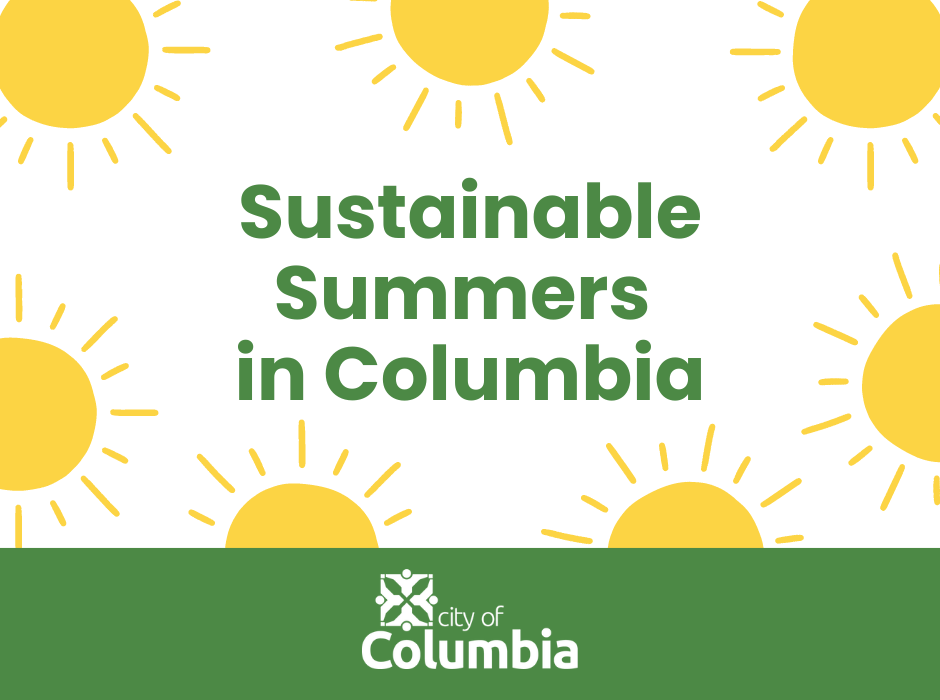As warm, summer weather arrives, so does warm weather, outdoor activities, and festive gatherings. While spending time outside is a great way to relieve stress and connect with nature, it’s important to be mindful that summers can often come with an increase in energy consumption and waste production.
During warmer months, air conditioning can use up lots of energy, single-use plastics can be popular at picnics and barbecues, and demand for water and electricity can rise significantly. However, with practical strategies in place, it’s easy to enjoy sustainable summer practices that will help reduce environmental impacts while making the most of the season.

- Optimize Your Air Conditioning: Keep your air conditioner running efficiently by setting the thermostat to a comfortable but energy-saving temperature, around 78°F when you're home and higher when you're away. Regular maintenance, like cleaning or replacing filters, ensures it operates effectively.
- Having trouble with your air conditioning? Income-qualified customers can swap older, less efficient, or broken window AC units for new energy efficient options through august. See this page for more details.
- Having trouble with your air conditioning? Income-qualified customers can swap older, less efficient, or broken window AC units for new energy efficient options through august. See this page for more details.
- Utilize Natural Ventilation: Open windows during cooler parts of the day and use fans to circulate air. Ceiling fans can make a room feel cooler, allowing you to raise the thermostat by 4°F without reducing comfort.
- Shade Your Windows: Install blinds, shades, or reflective window films to block out the sun’s heat. Planting trees or installing awnings can also provide natural shade.
- Cook Smart: Use a microwave, toaster oven, air fryer, or grill instead of your stove or oven, which can heat up your home and make your air conditioner work harder.

- Ditch Single-Use Plastics: Encourage guests to bring their own reusable cups, plates, and cutlery. Provide clearly labeled recycling bins to ensure proper waste disposal.
- Serve Locally Grown Produce: Support local farmers by incorporating in-season, locally grown fruits and vegetables into your menu. Not only does this reduce your carbon footprint, but it also supports the local economy.
- Minimize Food Waste: Plan your menu carefully to avoid excess food. Use leftovers creatively or donate them to local food banks if possible.
- Choose Sustainable Decorations: Opt for reusable or biodegradable decorations. Avoid balloons and other single-use items that can harm wildlife and the environment.

- Columbia Farmers Market
- When: Wednesdays from 4p-7p and Saturdays from 8a-12p
- Where: Under the MU Health Care Pavilion – 1760 West Ash St.
- Boone County Farmers Market
- When: Saturdays from 8a-12p (May 4 – October 26)
- Where: Parking lot of Columbia Mall, near Wendy’s
Previous Post
Sustainable Transportation in CoMo
Next Post
Fall In LOVE with These 4 City Sustainability Programs


